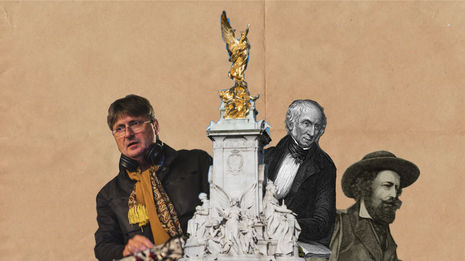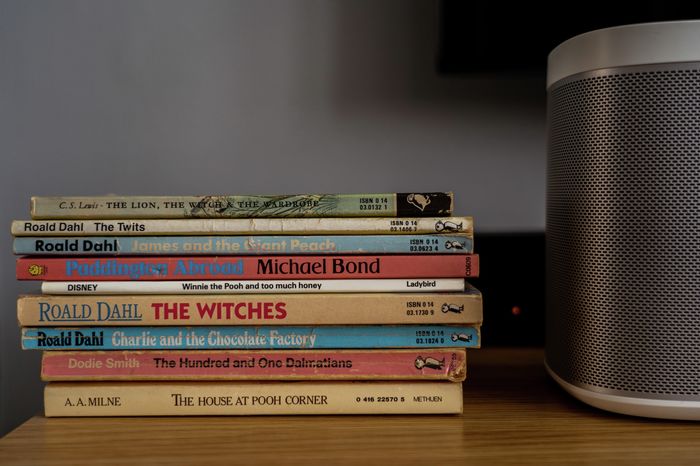Why we should (sort of) abolish the poet laureate
This National Poetry Month, Leo Kang argues that laureates should take their cues from librarians, not the King

When Andrew Motion stepped down as poet laureate in 2009, Wendy Cope – the favourite to succeed him – made headlines when she called for the post to be abolished. “When people ask me about the next poet laureate I say: ‘I don’t know. I don’t care. It isn’t important.’”
“To say the laureateship is outdated is putting it lightly”
For a poet known for her warmth and humour, it was a cold rebuff. But Cope believed that to take the post would be to betray her poetry. The “best way for a poet to serve the art”, she explained, “is to remain free to get on with writing the poems that he or she wants to write”.
Poets have always struggled to make ends meet. In the past, there was the practice of patronage, where patrons would provide a comfy salary in return for poems of praise. However, as Cope points out, a poet serves “the art” above anything else. Patronage is at best a compromise – at worst, artistic imprisonment. In 1616, Ben Jonson – the forerunner of poet laureates – lamented that he had been “betray’d” to a "worthless lord”. In the 1700s, laureates were expected to write birthday odes, which would be set to music and performed for the monarch.
Today’s laureates have no official obligations, but the shadow of patronage still lingers over them. “Every time there’s been a royal birth or wedding or death in the past 10 years,” wrote Motion, “a terrible low rumble has begun in newsrooms across the country. A rumble that has soon led to people ringing me up to ask whether I’m ‘thinking of doing something’.” Motion admitted that the tremors of this royal rumble were “very, very damaging” to his poetry. His own attempt at a birthday ode, written for Prince William’s 21st, is a spine-chilling example:
Better stand back
Here’s an age attack,
But the second in line
Is dealing with it fine.
When poets become court performers, their poetry starts to suffer. But the problem with the laureateship isn’t just an artistic one. When Carol Ann Duffy stepped down in 2019, one of the favourites to replace her was Benjamin Zephaniah. His response to the speculations was sharp:
I have absolutely no interest in this job. I won’t work for them. They oppress me, they upset me, and they are not worthy. I write to connect with people and have never felt the need to go via the church, the state, or the monarchy to reach my people. No money. Freedom or death.
Zephaniah, who was dubbed the “people’s laureate” by Birmingham Mail, opposed the laureateship not just as an artist but as an activist and anarchist. His writing gives voice to the Windrush, not the Windsors – being paid by the Crown would, to him, be a gross indignity.
To say the laureateship is outdated is putting it lightly. It’s a curse, compelling good poets to write bad poetry, and it’s also a stubborn stain from a bloody colonial history. Hear me out, then, when I say we shouldn’t abolish it.
“It should be poetry for the sake of poetry, and for the sake of the people”
In Andrew Motion’s words, the laureateship has “a writing bit and a doing bit”. To reform the role, we should shift it towards the latter. Motion chose to write that “rap” for William’s birthday, and really, he’ll just have to live with that. But he also co-founded the Poetry Archive, which consists of 20,000 recordings of poets reading their own work and is a cherished resource for poetry lovers everywhere.
More recently, Simon Armitage has begun a ten-year tour of the UK’s libraries in defiance of those trying to shut them down. I saw him when he came to Cambridge last term, reading poems set in the South Pennines (his home, and mine too). Sitting there in the musty belly of the UL under the weight of several centuries of books, I thought of my hometown and its tiny library – of how every library, no matter the size, can be a private, precious space. In Armitage’s words, “reading from inside their physical structures feels like an act of solidarity – with books, with poetry, and with communities.”
The “doing bit” of the laureate’s job should be communal, like a library. The US poet laureate began in 1937 as the “Consultant in Poetry to the Library of Congress” with a role similar to a reference librarian. Though the role has since expanded, it is still rooted in education, rather than patronage. Billy Collins’ “Poetry 180” project brought a poem a day to classrooms throughout the school year. Rita Dove championed children's poetry and jazz. Of the UK’s 21 poet laureates, 20 have been male, and all have been white. Traditionally, they served life terms, though it has since been shortened to a decade. Meanwhile, US poet laureates serve one-year terms, and the past four have all been people of colour. Joy Harjo, who served until 2022, was the first Native American to hold the post. Her “Living Nations, Living Words” gave 47 Native American poets a nationwide platform.
We do need someone to stand in solidarity with poetry, but we don’t need them standing on the monarchy’s shoulders. If poetry needs a face, it should be a fresh one. It should be poetry for the sake of poetry, and for the sake of the people.
 News / Hundreds of Cambridge academics demand vote on fate of vet course20 February 2026
News / Hundreds of Cambridge academics demand vote on fate of vet course20 February 2026 News / University Council rescinds University Centre membership20 February 2026
News / University Council rescinds University Centre membership20 February 2026 News / Judge Business School advisor resigns over Epstein and Andrew links18 February 2026
News / Judge Business School advisor resigns over Epstein and Andrew links18 February 2026 News / Petition demands University reverse decision on vegan menu20 February 2026
News / Petition demands University reverse decision on vegan menu20 February 2026 News / Caius students fail to pass Pride flag proposal20 February 2026
News / Caius students fail to pass Pride flag proposal20 February 2026










